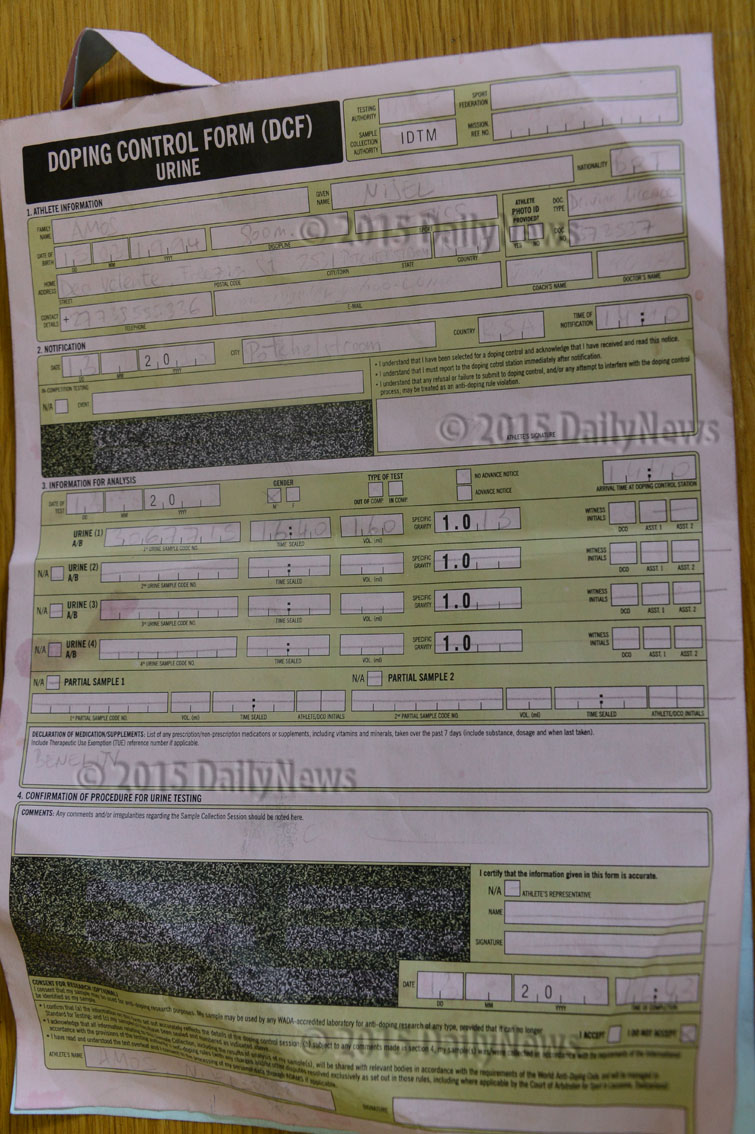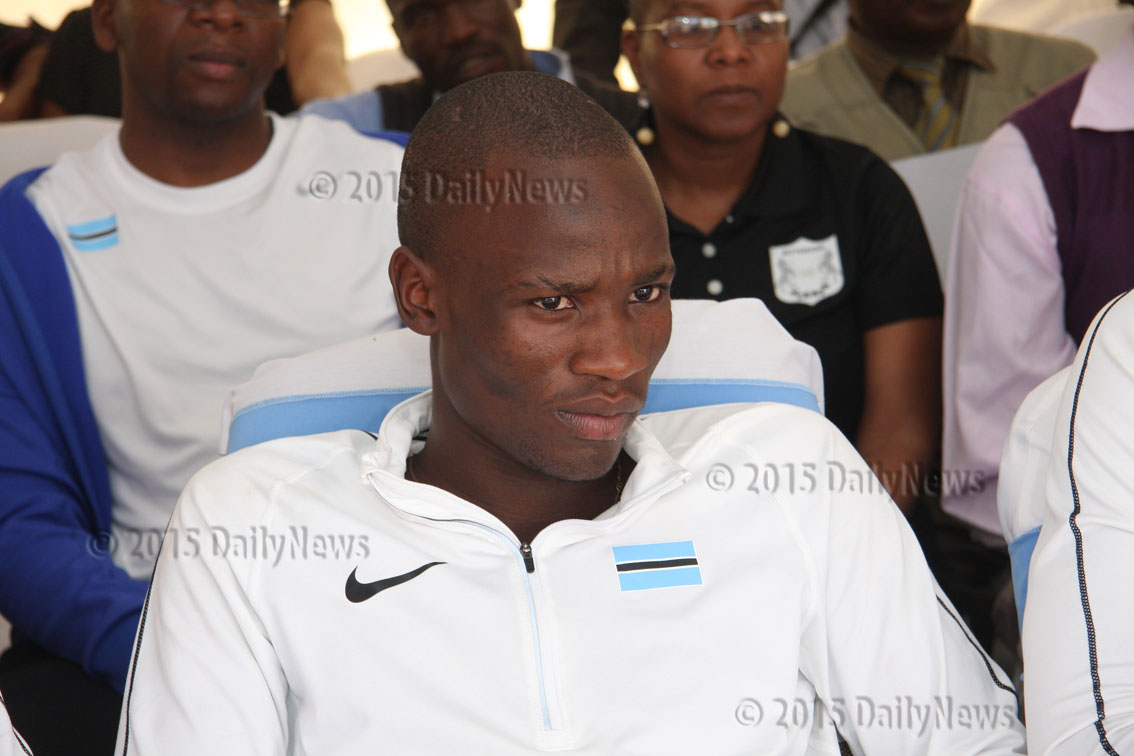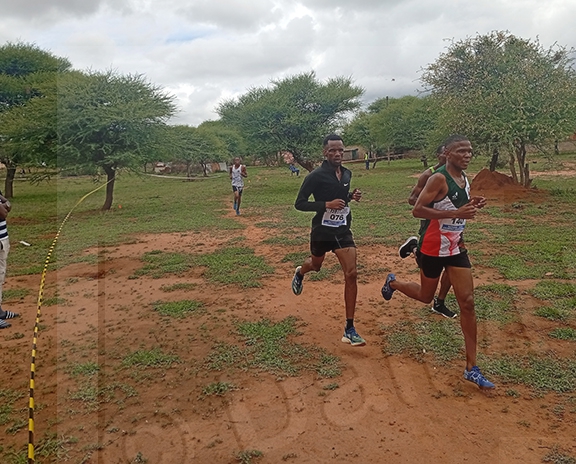Amos sets record straight
16 Mar 2015
Contrary to media reports alleging that the 2012 Olympic silver medallist, Nijel Amos, missed last month’s out-of-competition anti-doping test, the athlete actually took the test.
Amos is in possession of documents that he said were proof that indeed he underwent the anti-doping test on February 13 at Potchefstroom, South Africa.
The athletes said in an interview that anti-doping officials came to his house in the morning at around 6am but unfortunately he was out on a jogging routine. Amos said the officials then returned in the afternoon and conducted the test.
He expressed shock that some reports alleged that he avoided the test because he feared that he might test positive. According to Amos, who turned 21-years on March 15, such allegations had the potential to jeopardise his relationship with sponsors.
“On Wednesday (March 10), I received a call from my manager and sponsors enquiring about the missed test. I want people to appreciate and understand that as athletes we survive through our sponsors,” he said.
The 2014 Commonwealth gold medalist further said sponsors were a sensitive lot and once they pull out, it spelt doom for athletes. Therefore, he urged all stakeholders to be careful when dealing with or writing about anti-doping issues.
medalist further said sponsors were a sensitive lot and once they pull out, it spelt doom for athletes. Therefore, he urged all stakeholders to be careful when dealing with or writing about anti-doping issues.
Botswana Athletics Association (BAA) public relations officer, Ronald Masalila, said the International Association of Athletics Federations (IAAF) had communicated to them that the athletes had missed the test and was expected to respond by February 26.
He said BAA was still waiting for another communiqué from the international governing body to inform them that the athlete had managed to test. “As it is right now, we are waiting for IAAF. If he has tested and cleared, it is good and we are happy for that,” said Masalila.
According to World Anti-Doping Code and the International Standard for Testing the requirement for top-level athletes included in the registered testing pool of either their IF or National Anti-Doping Organization to specify one hour each day (between 6am and 11 p.m.) during which they could be located at a specified location for testing.
These athletes did not have to identify the 60-minute time-slot at a home address, but they could if they wished to. Previously this was a 24/7 requirement. The harmonisation of what constituted an anti-doping rule violation in relation to whereabouts and missed tests and what potential sanctions could be applied.
The rule further said any combination of three missed tests and/or failures to provide accurate whereabouts information within an 18-month period now leads to the opening of a disciplinary proceeding by the ADO with jurisdiction over the athlete.
Sanctions rangeed between one and two years depending on the circumstances of the case. Previously this was discretionary for Anti-Doping Organization’s with a suggested range of between three months and two years. ENDS
Source : BOPA
Author : Anastacia Sibanda
Location : GABORONE
Event : Interview
Date : 16 Mar 2015








